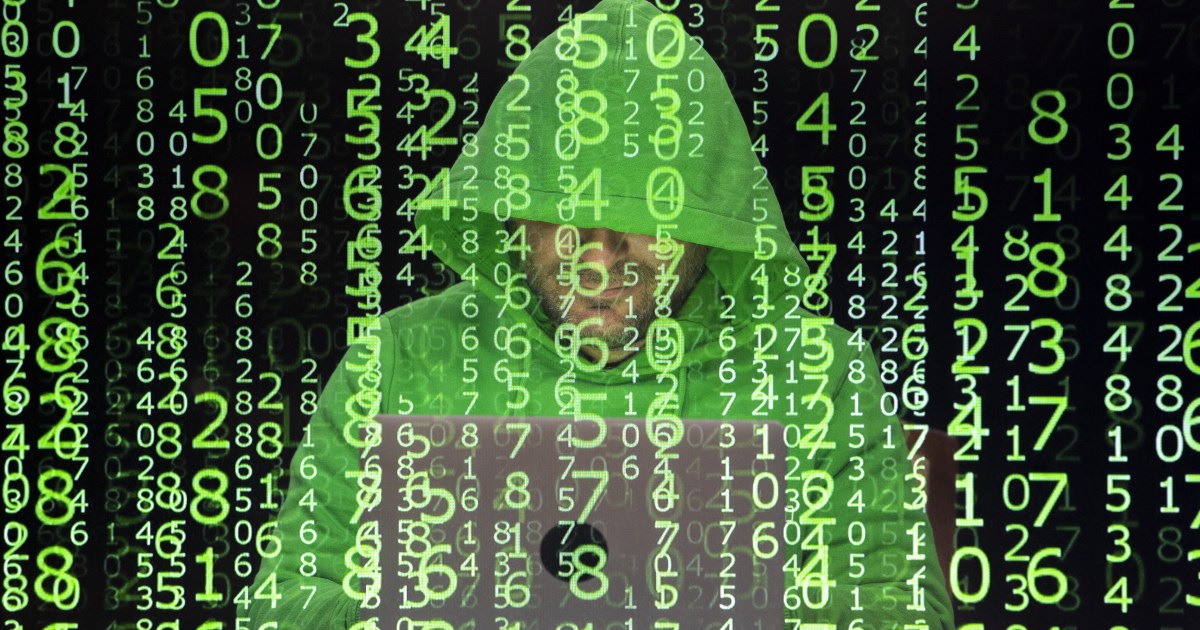Writer Alain Frachon
commented
in
his column
in the French
newspaper, Le Monde, on the widespread cyber-penetration that large American administrations and companies have been exposed to, referring in this context to the "fuzzy nature" of cyberspace.
The writer highlighted the frank accusation made by US Secretary of State Mike Pompeo to Russia in this case, while President Donald Trump has so far remained silent, although advisers in the White House also indicated a “Russian” responsibility, and Joe Biden, the president-elect, spoke, without naming Anyone by name, about the need to respond.
The writer stated that the espionage issue that the United States was a victim of was discovered in recent days, and it is likely to further poison relations between Moscow and Washington, pointing out that its exceptional size will make it one of the biggest intelligence strikes of the century.
In this regard, he quotes Nicolas Mazzucci, an expert at the French Foundation for Strategic Research (FRS), as saying that such an operation can only be carried out by states or organized cybercrime gangs.
Present time clients
Frachon warned that cyberspace is an area for obsessive operations, and the spy is no longer that person who lives in a turbulent and stormy world as in the novels of John Le Carré.
Today’s customers, most of them no longer need to transcend any geographical and ethical boundaries. They work in cyberspace, that “place” outside the boundaries and intangible that there seem to be no rules governing, so can we then do everything in cyberspace?
And when does espionage turn into outright aggression?
Writer Frachon asks.
"We should be fair and just in our judgments," he says at the beginning of his response to his question, quoting the American political scientist Robert Dujarric as saying, "Nobody ever talks about Western incursions into Chinese or Russian regimes."
Then the writer turns to how the hackers broke into the American software provider, "SolarWinds," whose clients include a large number of federal institutions, including the US Department of Defense (the Pentagon). Hackers deceived one of this company's programs by luring the customer into opening a window. Update, "this allowed them to introduce a spyware virus from the most powerful and worst viruses that kept arriving and wandering around the contents of their devices for 10 months, enabling them to examine millions of data.
Undoubtedly, it will take "months if not years to determine the extent of the damage," as the writer quotes Nicola Mazzucci, who adds, "However, we are forced to rely on the statements of the victims" who may have an interest in downplaying the breach to preserve the stock market price Or a public service reputation, and what happened to Solar Winds is an espionage operation and not an act of sabotage, if compared to what the Americans and Israelis did in 2010, when they used the Stuxnet program to dismantle part of Iran's nuclear program, this is undoubtedly an act of war, according to For the writer.
Espionage and aggression
But where does espionage end and aggression begin?
The writer wonders to answer that the borders in cyberspace are blurry, and the data that hackers infiltrate can be destroyed and replaced, but this does not mean that the activity of the federal government has been affected by this penetration for a long time, and the momentary paralysis of the administration, whether private or public, can lead to the death of people or Postponing surgery or delaying relief.
Searching for the hacker is no less difficult than assessing the damage caused by piracy. “We are looking for a method of encryption, some kind of software,” says Mazzucci, one of the authors of Winning Cyber Conflicts (Economica, 2015). And the computers used, and we call that climb to the pyramid of pain, "for example, we may find a malicious virus, which is only activated during working hours in Moscow and St. Petersburg.
But the most relevant hypothesis in the Solar Windows case is that the operation was carried out by hackers from the Russian group (APT29) on behalf of a Moscow intelligence service.
The author continues by saying that the mysterious nature of this borderless space which is at the same time very hypothetical and real makes piracy more dangerous.
The writer added that what Solar Windows has been exposed to cannot be precisely classified at the present time, but he warned that the day will come when the state will respond by traditional means to cyber attacks, especially since there is no international text governing relations between countries in cyberspace.
Here the writer quoted what Alex Younger said to the "Financial Times" newspaper, on the third of last October, before he retired as head of the British counter-espionage service "MI6", where he says that "in the past there was a difference, maybe Trivial, between peace and war, a difference between what is national and what is international, but all this no longer exists in cyberspace. We are all at the same time in a hybrid situation that combines ambiguity and conflict, "as he put it.

